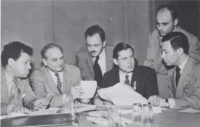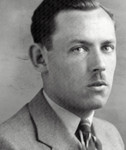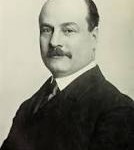U.S. Senator William Warren Barbour (1888-1943), an advocate for rescue of Jews from the Holocaust, had one of the most unusual backgrounds on Capitol Hill: in 1910, he became the national amateur heavyweight boxing champion of the United States and Canada, after knocking out an opponent in one of two bouts he fought on the same night.
Barbour, a Republican, served as mayor of Rumson, New Jersey, from 1923 to 1928. Following the sudden passing of U.S. Senator Dwight Morrow in 1931, Barbour was appointed to replace him.
When 400 rabbis marched in Washington just before Yom Kippur in 1943, to urge U.S. intervention against the Holocaust, Senator Barbour was one of the handful of members of Congress who came to the steps of the Capitol building to greet the protesters and express solidarity with their rescue campaign. One week later, Barbour introduced a Senate resolution that was intended to bring about the first meaningful U.S. response to the Holocaust. The bill called for the temporary admission to the United States of up to 100,000 people who were victims of “religious or racial persecution” at the hands of the Nazis. They would have been permitted to remain in America until six months after the end of the war. A parallel resolution was introduced in the House of Representatives by Congressman Samuel Dickstein of New York.
Six weeks later, Barbour, who was just 55, suffered a fatal heart attack. Bereft of its lead sponsor, the immigration resolution did not go forward. However, the attention surrounding the resolution may have given a boost to the Bergson Group’s resolution urging creation of a government rescue agency, which was introduced shortly afterwards.
Sources: Wyman, The Abandonment of the Jews, p.151;
Medoff, FDR and the Holocaust, p.81.











